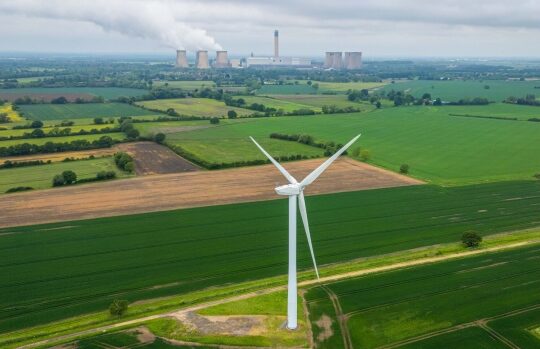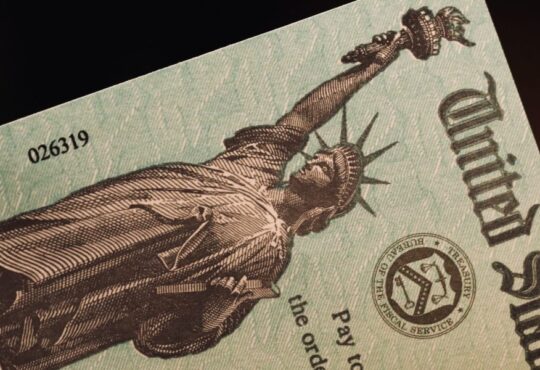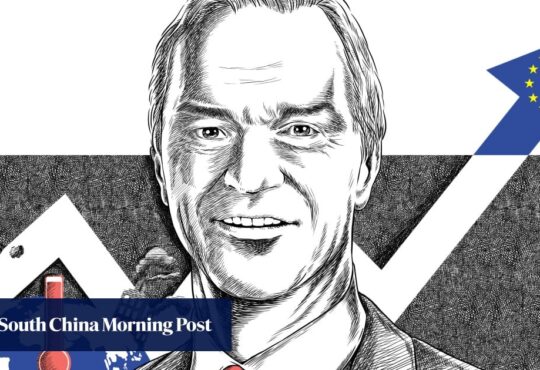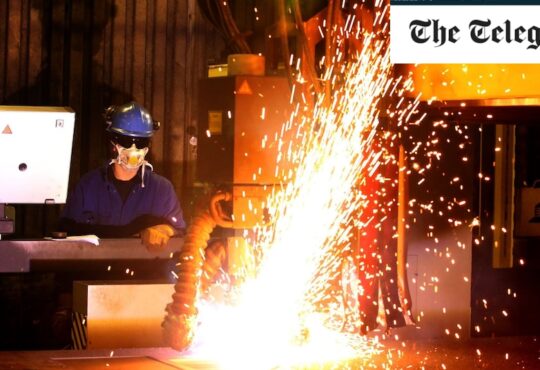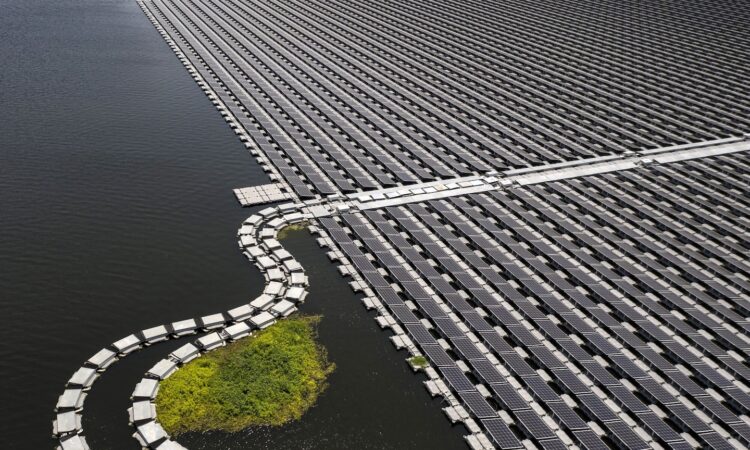
It’s not hard to see why politicians with an eye on the ballot might be looking to such measures. Right-wing populists appear to be gaining ground ahead of European Parliament elections due next summer. Such gestures aren’t cost free, however. The danger is that they’ll overshadow — or even derail — far more substantive and beneficial trade and climate policies, where Brussels could help reduce Chinese emissions at the same time as giving succor to its own industries.
The centerpiece of that drive in recent years has been the EU’s carbon border adjustment mechanism, or CBAM, which started going into effect this month. It’s basically a version of Europe’s carbon-pricing regime, imposed at the border to level the playing field with foreign manufacturers.
Take the example of steel: A European mill buying emission permits at current prices would face an additional €118 per metric ton carbon cost on top of its €630/ton sale price for coiled metal. Chinese competitors, which already produce their steel more cheaply, would only pay about €14/ton under that country’s far more generous emissions-pricing set-up. The CBAM would bridge that gap with a type of tariff levied on the carbon content of imported goods.(2)
It’s an ingenious idea, and crafted specifically to work within the World Trade Organization’s rules. Nearly a quarter of global pollution occurs in regions that have some form of carbon price, but only in Europe is the cost high enough to start changing polluters’ behavior. “Carbon leakage” — the roughly 13% of the EU’s pollution that comes from importing energy-intensive goods, rather than producing them domestically — risks a race to the bottom, as manufacturers migrate to countries with low or no prices on emissions. By removing the potential for this arbitrage, the CBAM helps drag other regions toward European carbon price levels and encourage cleaner industries overseas. Chinese industrial sectors affected by the CBAM may join that country’s carbon market from next year, Bloomberg News reported last week.
That virtuous cycle is only going to work, however, if trade partners see Europe as an honest broker. Within China, two types of companies are competing for capital right now. On one side are sophisticated, export-oriented private businesses in the clean energy and technology sectors, which represent the best prospects for the country hitting its targets on pollution and sustainable economic growth. On the other are dirty, state-owned behemoths in construction and basic materials, which account for more than half of emissions but can be counted on to stimulate the economy if all other options fail.
The CBAM can potentially strengthen the political and economic position of more innovative companies by providing them with a vibrant export market. If Europe is seen as irredeemably protectionist and hostile, however, it’s the state-owned giants that will gain the upper hand.
We have seen a similar situation in recent years with one of China’s other major trading partners, Australia. Deteriorating relations under the former Liberal-National coalition government saw Canberra block and review various Chinese takeover bids on spurious grounds, and Beijing responding with wide-ranging embargoes on a range of Australian exports.
The less shouty approach of the current Labor government, by contrast, has seen the trade embargoes lifted, Chinese-Australian journalist Cheng Lei released, and a planned meeting between Prime Minister Anthony Albanese and President Xi Jinping in Beijing, the first such summit in seven years. That’s happened without any reversal of Australian positions on issues such as Xinjiang, Hong Kong, Taiwan, the South China Sea, foreign interference in local politics, and plans to purchase nuclear submarines to strengthen security ties with the US.
There’s a lesson in that. Bash foreigners for political gain, and they are likely to bash back, so you end up getting nowhere. Reducing climate policies to another front in a simmering trade war is a great way to empower soot-stained dinosaurs at the expense of the clean-energy pioneers that the world needs. If Brussels wants to assist the substantial slice of China’s economy that’s pushing rapidly toward net zero, it needs to show that it’s a trustworthy partner by focusing on consistent policies that reward green businesses, rather than punishing them with questionable investigations.
More from Bloomberg Opinion:
When Quiet Diplomacy Wins Out Over Harsh Words With China: Karishma Vaswani
Apple’s Supply Chain Is on a Collision Course With Climate Change: Culpan, Fickling & He
China’s Green Subsidies Are Good for Europe: Mihir Sharma
(1) If you include services as well as goods, the US is still larger.
(2) These prices will only entirely be felt when the EU’s policies on carbon in industry are fully implemented over the coming decade.
This column does not necessarily reflect the opinion of the editorial board or Bloomberg LP and its owners.
David Fickling is a Bloomberg Opinion columnist covering energy and commodities. Previously, he worked for Bloomberg News, the Wall Street Journal and the Financial Times.
More stories like this are available on bloomberg.com/opinion

